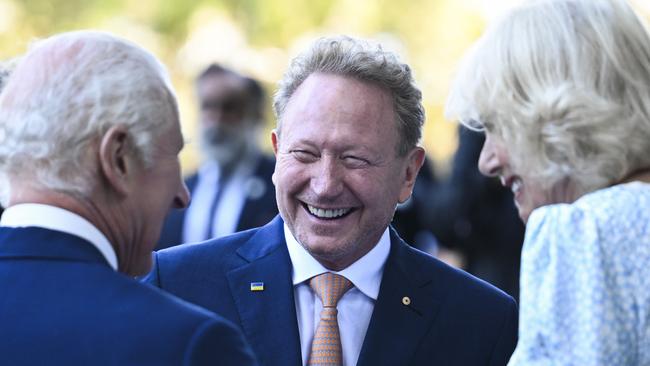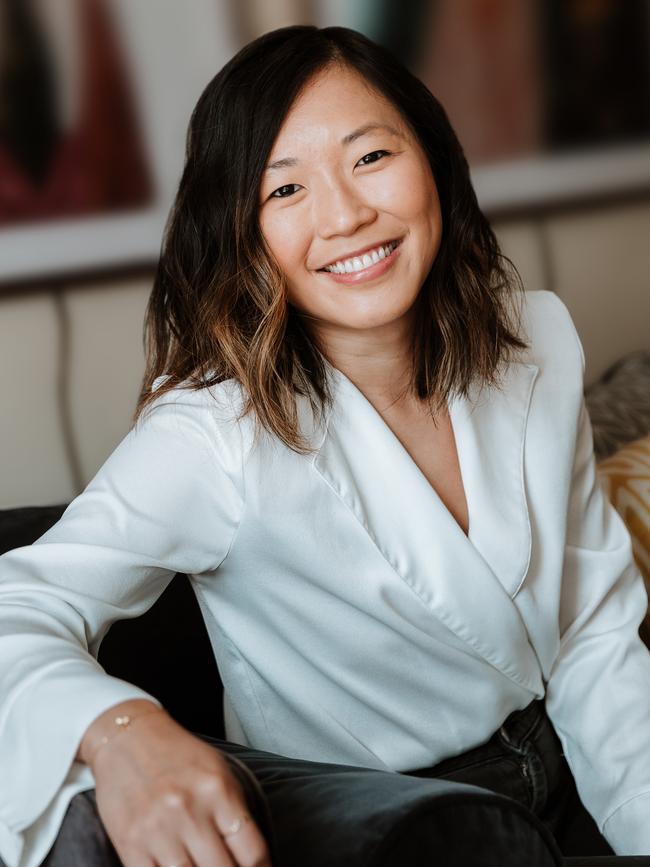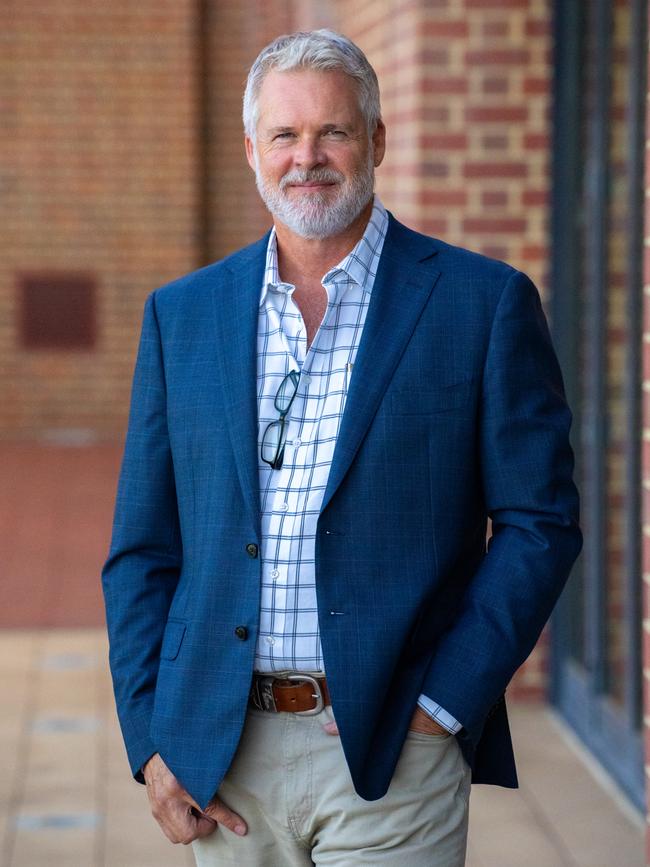Andrew Forrest backs health start-up Verge Genomics fight against ageing
Verge Genomics’ Alice Zhang left university to build an AI-powered drug discovery platform to develop the next blockbuster treatments for diseases linked to ageing, from Alzheimer’s to obesity.

Alzheimer’s disease and obesity might not appear to have much in common. But Verge Genomics, a start-up that has secured backing from Andrew Forrest, is developing treatments for both.
The common link? Ageing.
Just like our risk of cognitive diseases like Alzheimers increases as we age, so does our chance of becoming more obese, and this is Verge Genomics’ founder and chief executive Alice Zhang’s sweet spot.

Ms Zhang founded the company in 2015 after leaving a doctorate program in neuroscience at the University of California. She has raised more than $US100m ($151.7m) to build an artificial intelligence-powered drug discovery platform – a technique that aims to save billions of dollars in finding the next blockbuster treatments.
It’s a similar approach that Moderna – best known for its Covid-19 shot – took with its mRNA technology that can also be applied to influenza and personalised cancer vaccines, and eschews the conventional drug development path.
Ms Zhang has received backing from Andrew Forrest and Nicola Forrest’s $250m health technology fund Tenmile. Tenmile’s other investments include Yosemite – a $US200m fund that Reed Jobs, the son of late Apple co-founder Steve Jobs, launched with the aim of making cancer ‘non-lethal’.
Ms Zhang said when she was at university, she was shocked to see that scientists were still using mice to produce drugs for humans, prompting her to instead look at data and algorithms to see if there was another way.
“I’m a product of a generation that grew up very much seeing how technology has really changed all aspects of our lives, from the way we eat to move to get around. And I just always thought it was quite striking that in pharma, we’re not really using these types of technology, like we’re still very relying on very kind of trial and error methods of guessing and checking,” Ms Zhang said.
“I started coding up algorithms, essentially to mine big data to find new drugs. Initially it was to treat nerve injury, so peripheral and spinal cord injury. When we put it into animals that had got a spinal cord injury, it helped them recover the function of their legs about four times faster that the kind of gold standard drug, and I thought, ‘wow this is such a powerful technology’.
“When I actually looked at the landscape, at what companies were actually using an AI-first and computational-first approach, I was surprised to find there were very few companies. It sounds quite intuitive when you say it out loud, but I think inertia is a powerful thing.”
Using this method, Verge Genomics is looking at a “wide variety” of complex disorders, including amyotrophic lateral sclerosis (ALS), Parkinson’s diseases and Alzheimer's – and now obesity.
Ms Zhang and her team now go directly to humans rather than animal models, by analysing and sequencing the data of more than 9000 human brains, spinal cords and other tissues, to find the best treatments.
It’s a process she says is similar that forensic investigators apply to a crime scene, and what gives her company its name. Genomics is the study of a complete set of genes, the way they work and interact with each other and the environment.
“Instead of doing a ‘guess and check’ method, we first get the actual brains of someone who had the disease, like Alzheimer’s, ALS, Parkinson’s disease. We get that tissue because it’s the most accurate representation of what happened in that person, beginning from the moment they are born, all of their genetics, all of the environmental factors and cellular changes, ageing that occurred, all the way to a person’s death.
“It’s like looking at a crime scene. It’s a very accurate representation of what actually happened. We capture all 30,000 genes … and then we can actually map out the crime scene, or what happened in disease.
“And then the trick, and where the AI comes in, is figuring out, you know, what was actually the cause of the disease. We use AI to then figure out what are the core hubs of these networks that are underlying disease. And then we target, we design drugs against those causes of disease.”
Verge Genomics has developed a drug to improve survival rates in ALS – a fatal nervous system disease that affects nerve cells in the brain and spinal cord, causing loss of muscle control and paralysis. It can hit patients at any age, but symptoms usually develop between the ages of 55 and 75.

Verge Genomics’ second drug in development is for metabolic diseases, which cause obesity.
“We actually approached it from a pretty unique angle. A lot of the kind of famous weight loss drugs out there are mainly focused on appetite depression, but what we did was we used our tissues to really look at what are the kind of core causes of obesity, and we did that by looking across ageing populations,” Ms Zhang said.
“As you get older, your metabolic function declines. You can eat the same things and become more overweight. And so we found a pathway that leads to metabolic decline with age, and we found a target that allowed us when we designed a drug against it, prevents people from gaining weight.”
Tenmile managing director Steve Burnell said: “We see huge potential in the role of AI when it comes to discovering new drug targets for diseases that are hard to treat.”
“AI can help find the signals in large datasets that represent new targets and reduce the time and cost it would traditionally take in drug development,” Dr Burnell said.
“Verge Genomics is at the forefront of their field. We see immense value in the work they are doing and the combination of their high quality, curated data sets, and strength in AI and data analytics.”




To join the conversation, please log in. Don't have an account? Register
Join the conversation, you are commenting as Logout